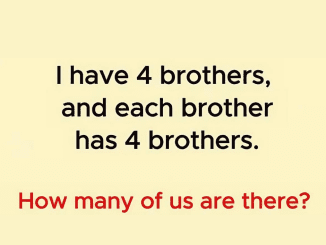In a troubling example of police misconduct, a man named Thomas Perez Jr. was awarded nearly $900,000 after a harrowing interrogation that led him to falsely confess to a murder that never occurred. Following an intense 17-hour interrogation by the Fontana Police Department, Perez confessed to killing his father—a man who was, in fact, alive. This case sheds light on the powerful psychological tactics that law enforcement can employ and raises questions about the limits of police interrogation.

Perez prior to questioning. Credit: Fontana Police Department (via Jerry Steering)
The Start of a Nightmare: Reporting His Father Missing
The ordeal began on August 7, 2018, when Thomas Perez Jr., then 30 years old, reported his father missing. Perez’s father had not returned from walking the family dog, and concerned, Perez reached out to the Fontana Police Department for help. Instead of receiving the support he expected, he found himself in the middle of an intense and distressing interrogation.
Shortly after making the report, Perez was taken in for questioning. What should have been a straightforward process quickly escalated into a 17-hour ordeal, with police pressing him relentlessly. By the end, Perez had not only confessed to a murder he didn’t commit but also described details of a crime that never even happened.
Psychological Coercion: Tactics Used During Interrogation
Throughout the interrogation, Fontana police detectives used psychological tactics designed to wear Perez down and convince him of his own guilt. According to court documents, the detectives lied, telling Perez that they had found bloodstains in his home and that a police canine had detected the presence of a dead body. These accusations painted a vivid and horrifying picture of a crime scene that never existed.
The detectives went even further by threatening Perez’s dog, suggesting that she was traumatized by the alleged crime. At one point, an officer pointed to the dog and reportedly told Perez, “Look at your dog. She knows because she was walking through all the blood.” The pressure was unbearable, and it wasn’t long before Perez, sleep-deprived and suffering from the stress of the accusations, started to break down mentally.
A False Confession and a Suicide Attempt
Under the extreme pressure of the interrogation, Perez finally confessed to murdering his father, describing in detail how he allegedly stabbed him with scissors. While he gave this false confession, Perez’s physical and mental state deteriorated. He began ripping out his hair, tearing at his clothes, and hitting himself. Despite his visible distress, officers refused to let him take his psychiatric medication and denied him medical assistance when he asked for it.
Left alone in the interrogation room, Perez attempted suicide, trying to hang himself with the drawstring from his shorts. Fortunately, he was found in time, but the experience left him deeply traumatized. At no point during this ordeal did the officers inform him that his father was actually alive. Instead, Perez was placed on an involuntary psychiatric hold, where he remained isolated for three days, convinced that both his father and his beloved dog were dead.
The Truth Emerges: No Murder, No Crime
The reality was starkly different from what the police led Perez to believe. His father had spent the night with a friend and was, in fact, perfectly safe. Despite this information, which was available soon after the interrogation, the police did not disclose it to Perez immediately. Instead, they allowed him to continue believing that he had committed a horrific crime.

Officers brought in Perez’s dog and threatened to have it put down. Credit: Fontana Police Department (via Jerry Steering)
Once the truth emerged, Perez’s attorney, Jerry Steering, took up his case, filing a civil suit against the city of Fontana. The case brought to light the aggressive and unethical tactics that the detectives had employed to coerce Perez’s false confession. Steering emphasized that the case serves as a reminder of the lengths to which police can go to secure a confession, even if it means manipulating an innocent person into admitting to a crime they didn’t commit.
Settlement and the Implications for Police Accountability
The lawsuit resulted in an $898,000 settlement from the city of Fontana. Perez accepted the settlement, largely out of concern that a jury-awarded verdict could be overturned due to the doctrine of qualified immunity, which often protects police officers from liability for actions taken in the line of duty. Despite the settlement, the Fontana Police Department has not commented publicly on the case, and only one of the officers involved has since retired. The others remain employed by the department, a fact that raises questions about accountability and oversight within the police force.
U.S. District Court Judge Dolly Gee criticized the tactics used by the detectives, noting that Perez was sleep-deprived, denied necessary medication, and subjected to psychological coercion that ultimately led to his confession and suicide attempt. Her observations highlight the need for reform in police interrogation practices, particularly when it comes to protecting the rights and mental well-being of individuals in custody.

Perez was “psychologically tortured”. Credit: Fontana Police Department (via Jerry Steering)
Qualified Immunity and the Limits of Police Interrogation
This case brings attention to the concept of qualified immunity, which often shields police officers from civil liability, even in cases where they are found to have violated an individual’s rights. Perez’s attorney emphasized that the case demonstrates how skilled police interrogators can pressure almost anyone into a confession, particularly if the individual is vulnerable due to mental health issues or other factors.
While the settlement offers some relief for Perez, the persistence of qualified immunity raises concerns about the lack of accountability in cases of police misconduct. As Steering put it, “If the police are skilled enough and they grill you hard enough, they can get anybody to confess to anything.” His words underscore the urgency of reevaluating the legal protections afforded to police officers and the ethical boundaries of interrogation techniques.
The Need for Reform and Accountability in Law Enforcement
Perez’s ordeal serves as a disturbing example of the need for reform in law enforcement practices. The tactics used in his interrogation were extreme, but not unique. Cases like his underscore the importance of transparency, oversight, and accountability within police departments. Interrogation methods that rely on deception, coercion, and intimidation can lead to false confessions, wrongful convictions, and, in some cases, severe psychological harm.
The case also highlights the impact of mental health on the justice system. Perez’s untreated mental health issues exacerbated his vulnerability during the interrogation, making it easier for police to manipulate him into confessing. A system that prioritizes mental health care alongside ethical interrogation practices could prevent situations like this from occurring in the future.
Conclusion: A Cautionary Tale on Police Power and Individual Rights
Thomas Perez’s story serves as a sobering reminder of the potential for abuse within the criminal justice system. While the settlement offers some form of justice, it cannot undo the trauma he endured or the damage inflicted by the tactics used against him. This case raises important questions about the limits of police power, the need for ethical interrogation practices, and the protection of individual rights under the law.
As Perez’s attorney noted, it is all too easy for police to extract a confession when they are relentless in their approach. The lesson here is clear: for justice to be served, law enforcement must be held to a higher standard, one that respects both the truth and the rights of individuals. Perez’s experience is a stark reminder of the importance of vigilance, accountability, and reform in our pursuit of a fair and humane justice system.


